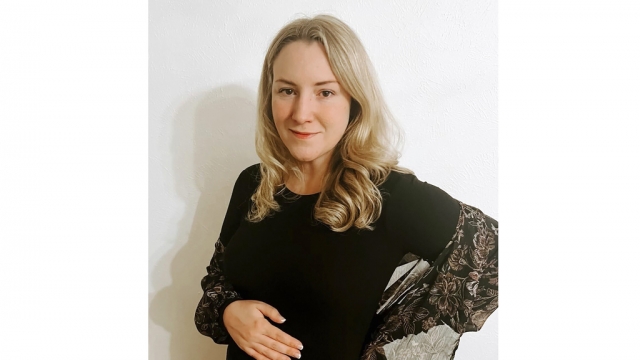The Texas Supreme Court overturned a decision that would have permitted Kate Cox to get an abortion using the state's "medical emergency" exception.
Before the ruling came down Monday evening, an attorney for Cox, the pregnant Texas woman who was seeking an abortion that Texas officials say would be illegal, said Cox was fleeing the state to have the procedure.
State officials claim Cox is unable to have access to an abortion because they say her life is not at risk. But Cox says that carrying her fetus to full term would compromise her ability to have future children.
Her fetus has a genetic condition known as trisomy 18, which makes the baby likely to die in the womb or live for a week at most after birth. Continuing the pregnancy also puts Cox's life at risk from complications, including a ruptured uterus, the lawsuit states.
After a lower court ruled that Cox could have an abortion, the state of Texas filed an appeal, which prompted the state Supreme Court to intercede, saying more time is needed before settling the case.
But on Monday, her attorneys released a statement saying that the legal battle has dragged on to the point where she needs to leave Texas to seek care.
SEE MORE: Post-Roe reality: Anti-abortion activists push for 'whole life' policy
Earlier on Monday, Cox's attorney Molly Duane said the longer Cox waits, the more she is at risk.
Duane says that Cox's case is evidence that the exceptions made in Texas' abortion ban are largely not real. The state has exceptions in cases of rape and incest, in addition to when the life of the mother is at risk.
"Those exceptions do not actually exist in practice, and this is just one of many examples of why that is true because if Kate Cox doesn't qualify for an emergency abortion, then I don't know who does," Duane said.
Texas Attorney General Ken Paxton said a doctor who provides Cox with an abortion would be the subject of a $100,000 fine. Paxton said in a court filing that Cox has been unable to prove her condition is "life-threatening."
Duane said this has been a difficult time for Cox after finding out the fetus she is carrying will not survive for long after birth.
"I will say that it has been a very trying time for her," Duane said. "She and her family are experiencing the loss of a child. They have two young children. Now they desperately want to grow their family, but they recognize that this pregnancy is not going to be what will allow their children to have another sibling and they want to be able to try again."
Duane said that the decision for an abortion should ultimately rest with the woman and not politicians.
"I just would ask folks to think about who do they want to be able to decide," she said. "Should a family be able to decide how they grieve and how they grow their families or should politicians and judges and courts be in the mix? And if it were me, I would just want to be able to decide with my family."
Cox has reportedly received offers to carry out her procedure by physicians in Kansas, Colorado, Canada and elsewhere but her attorneys will not disclose where she will ultimately receive the procedure.
Meanwhile, a lawsuit in Kentucky closely mirrors Cox's case.
An anonymous woman who is eight weeks pregnant claims the state's near total abortion ban violates her right to privacy.
Kentucky Attorney General Daniel Cameron has said his office is reviewing the complaint.
According to the Guttmacher Institute, in 2023 nearly 1 in 5 U.S. abortion patients traveled across state lines to receive an abortion.
That's double the number of such travelers in 2020.
Trending stories at Scrippsnews.com



